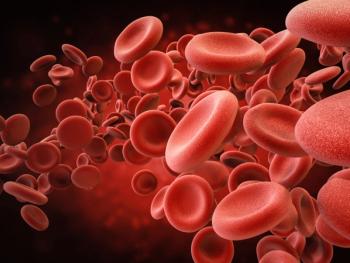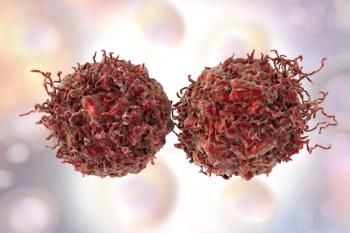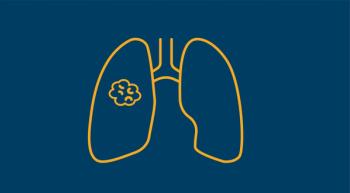
Newer modalities seek to use MRD to provide more definitive prognoses.

Stephanie Jackson, DNP, MSN, RN, AOCNS, BMTCN, Oncology Nursing News co-editor in chief, comments on how health care providers can effectively care for patients with COVID-19 and hematologic malignancies.

A speaker at the Oncology Nursing Society Bridge Program discussed how nurses can build their own resilience and proactively protect their mental well-being.

An expert on immune toxicity management discusses dermatologic, gastrointestinal, hepatic, and endocrine irAEs and how nurses can help educate their patients to monitor these symptoms.

An expert on pain management discusses safe and effective opioid prescriptions to manage cancer-related pain.

Deidra Hamilton, MSN, RN, OCN, ONN-CG, recently presented on how cancer institutions can clearly define the role of a nurse navigator to prevent scope creep and use gap analysis and metrics to showcase the value of a navigator in their program.

Patients with HER2-positive, metastatic colorectal cancer and higher HER2 expression at baseline experienced improved responses following treatment with trastuzumab deruxtecan.

A 4-year follow-up of patients with treatment-naïve triple-negative breast cancer who received carboplatin plus neoadjuvant paclitaxel, followed by doxorubicin and cyclophosphamide, suggests that the regime induces superior pathological complete response and event-free survival.

Adavosertib decreased the risk of disease progression or death by 65% in patients with TP53-/RAS-mutant metastatic colorectal cancer (mCRC).

Patients with prostate cancer fared better following treatment with magnetic resonance-guided focused ultrasound focal therapy than with radical prostatectomy or radiation therapy, shows study presented at 2021 AUA Annual Meeting.

Real-world evidence recently presented at the 2021 AUA Annual Meeting showed that high adherence rates and favorable prostate-specific antigen (PSA) response were observed in men with nmCRPC who were treated with apalutamide.

A phase 2 trial presented at the 2021 ESMO Annual Congress showed that Balstilimab plus Zalifrelimab induced superior response rates, duration of responses, and overall survival in patients with recurrent/metastatic cervical cancer.

An expert presenting at the Society of Hematology Oncology 2021 Annual Conference shared important updates in polycythemia vera (PV) treatment and weighed in on the direction of future treatment.

Data presented at the 2021 ESMO Congress suggest that pembrolizumab in addition to chemo with or without bevacizumab may become new standard of care in the frontline setting of cervical cancer treatment.

Obese men are more likely to have improved overall survival following treatment for mCRPC than man who are overweight or normal weight, analysis finds.

Interim findings presented at the 2021 ESMO congress suggest that tisotumab vedotin plus frontline carboplatin and second-/third-Line pembrolizumab may be a suitable treatment option for recurrent/metastatic cervical cancer.

Characteristics such as low positive PD-L1 expression and rare high positive staining were identified in both patients with VHL-mutated and VHL wild type clear cell renal cell carcinoma.

Patients with endometrial cancer and high tumor mutational burden experienced superior overall response rates to the agent dostarlimab than patients with low mutational burden.

Patients with nonmetastatic castration-resistant prostate cancer often undergo prolonged treatment periods, making the safety profile of therapies like darolutamide an important factor in optimum treatment selection.

Yoga has a positive impact on the vagus nerve, which influences how people think, remember, and feel, and therefore can improve the mental well-being of patients with prostate cancer.

Patients with progressed multiple myeloma experienced deep and durble responses through CAR T-cell therapy ciltacabtagene autoleucel therapy.

Patients with chronic lymphocytic leukemia (CLL) are at an increased risk for infection.

Treating patients with myeloproliferative neoplasms in accelerated phase (MPN-AP) remains an ongoing challenge as there are still no standard therapeutic approaches, says an expert.

Updates from the ongoing S1619 trial suggest that a triplet combination regimen of neoadjuvant cisplatin, pemetrexed, and atezolizumab is effective and tolerable in the treatment of patients with resectable pleural mesothelioma.

Due to the favorable efficacy and safety profiles of daratumumab plus lenalidomide and dexamethasone, researchers speculate that the combination may become the new standard of care in multiple myeloma treatment.

Patients with myeloma and a negative MRD may be at a reduced risk of mortality and other progression-free survival events.

Patients with both COVID-19 and malignant pleural mesothelioma showed high rates of hospitalization and mortality.

While survival rates in T-cell acute lymphoblastic leukemia remain around 90%, researchers are optimistic that the use of targeted therapies and immunotherapies will continue to improve treatment options.

International lung cancer clinical trial sites reported that flexibilities in time and place were effective strategies to mitigate COVID–19-related patient concerns and to increase participation.

Selectively targeting the EGFR exon insertion mutations was associated with improved outcomes in patients with previously treated non-small cell lung cancer.